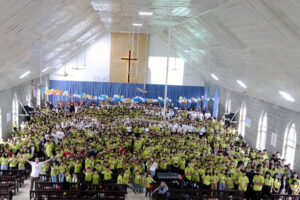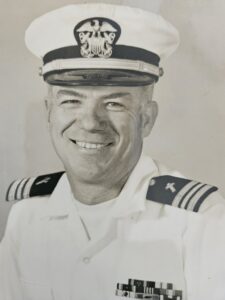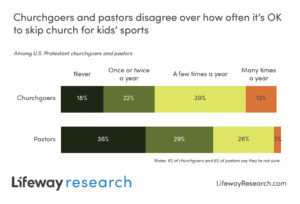
NEW YORK (BP) – There’s no need to look at footage of the collapsing twin towers, the chaotic rampage of pedestrians and office workers fleeing walls of dense smoke and falling debris, or handwritten signs asking missing loved ones to check in.
For many who lived through 9/11, the 22nd anniversary of the far-reaching tragedy is now a day to reflect, seek self-care and pray, said Kareem Goubran, pastor of Graffiti Church in Brooklyn.
“Most people I know don’t; people from New York don’t watch that stuff,” Goubran said of videos of the tragedy.
“I’m being very intentional in reaching out to people who I know who experienced a lot of loss and just need a safe place to be heard,” Goubran told Baptist Press on the anniversary. “Today, our staff is there at the church and I’m making some phone calls, just being available to remind people they’re not alone.”
Goubran posted his cell number on Facebook with an opportunity for anyone to call who’s having a difficult time 22 years after the terrorist attack that took nearly 3,000 lives at the World Trade Center, the Pentagon and the crash site of United Flight 93 in a Pennsylvania field. The flight presumed headed to the nation’s Capitol complex was intentionally downed by passengers who managed to divert the plane from terrorists’ intended target.
Goubran sang and posted on Facebook “Ordinary Day,” a song written on 9/11 by Owen Field, the son of Goubran’s predecessor and Graffiti Church founding pastor Taylor Field.
Goubran had not received any calls when Baptist Press spoke to him midday.
“I do think maybe time doesn’t heal all wounds,” he said, “but the Lord is a healer over time. So I do think 22 years certainly feels different than five and 10.”
Goubran led for more than 10 years a post-9/11 recovery ministry at Graffiti Church that was Taylor Field’s brainchild.
“We did for 10-plus years, a work focused on helping people who lost jobs due to 9/11, to help them get job training … and some financial assistance, as well as a lot of grief support for people struggling,” Goubran said.
Graffiti included references to 9/11 during Sunday worship with a sermon focused on The Good Samaritan, a lesson Goubran said came to life as Southern Baptists helped the community recover from the tragedy.
“Baptists across the country helped us, not only tangibly and physically with things to meet people’s needs, but chaplains came up and helped us understand the power of listening to people, giving them a place to tell their story and to be heard,” he said. “Because Graffiti has always been a ministry called to meet people at their point of trauma, whether that’s experiencing homelessness or hunger or poverty or family crisis, when we started doing the 9/11 work, it was a blessing to see the connection.”
He thanked on Facebook “those who ran towards danger to bring hope in the midst of tragedy,” and those who supported the church’s 9/11 recovery outreach.
In addition to those killed and physically injured in the attacks, an estimated 422,000 New Yorkers suffered post-traumatic stress disorder through September, 2014, New York Magazine reported.
“Thank you, God, for reminding us that you were with us through those challenging days and you are with us now.”















